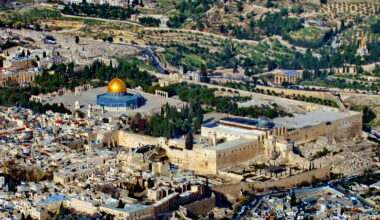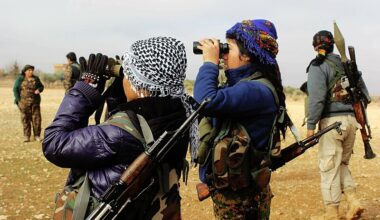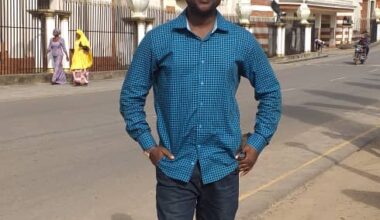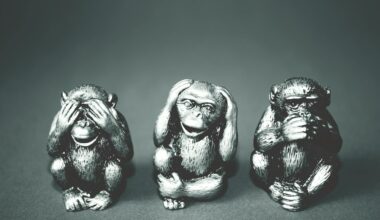
In January, the BBC reported that the Islamic Students Associations of Britain (ISA) has been promoting online events in which Islamic Revolutionary Guards Corps (IRGC) commanders have given anti-Semitic and Islamist talks to students. One such speaker even later boasted about his role in training Hamas before the 7 October attacks. The ISA is different from mainstream student Muslim groups in that, as the BBC reported, it ‘was founded to promote the philosophy of the leader of the Islamic Revolution in Iran, Ayatollah Khomeini.’ The IRGC is one of the arms of the Iranian state and it supports Islamist groups like Hamas and Hezbollah. The British security services say that they have dealt with more than a dozen kidnapping and assassination plots by the IRGC since 2020.
All of this reveals just how insidiously the Iranian regime is using Muslim organisations in the West to target and radicalise Muslim youth. Despite this, and despite the fact that the Iranian leadership has a long history of waging proxy conflicts in the Middle East to destabilise the region, Iran was appointed chair of the 2023 United Nations Human Rights Council (UNHRC) Social Forum.
It is important to mention that the Social Forum took place amid Israel and Hamas’ ongoing conflict (though the initial appointment of Iran to the chair preceded the conflict). On 7 October, Hamas entered Israel with the sole goal of killing as many people as they could. They brutally massacred more than 1,000 people of all ages, including men, women, children, and entire families.
Given the links between Iran and terrorist groups like Hamas, 7 October raised the question of Iran’s involvement in the massacre of Israeli civilians. There have been conflicting reports about Iran’s direct involvement in the attack, but Iran has publicly praised the attack and voiced its strong support for Hamas. Nevertheless, the UN let Iran chair the Social Forum. Less than a month after 7 October, the UN General Assembly rejected a resolution to condemn Hamas for such a vicious attack on civilians.
This is not to mention that, while the UN’s response to 7 October and Hamas’s crimes has been severely lacking, Israel has been harshly criticised for its counter-attack. It is reprehensible that the United Nations, the very organisation that was established to resolve international conflicts and promote human rights, has been unable to consistently do so in this case.
Despite their theological differences, the Iranian regime and the extremists it supports share essentially the same ideology as the likes of al-Qaeda and Islamic State. They seek to subjugate people under Islamic law and to establish and spread Islamic states. People who think that the dream of establishing the caliphate died with the military destruction of Islamic State are wrong. Islamic State’s ideology lives on in the shape of Hamas and Hezbollah and the theocratic regime that supports them. Radicalisation and terrorism remain as dangerous as ever.
In the UK, the director general of MI5, Ken McCallum, has said that MI5 is ‘focused with particular intensity’ on the growing risk of attacks within the UK following recent events in the Middle East. He further said:
‘Sadly, over the course of my career, it has often been the case that events in the Middle East can then echo in Europe, in the UK, and so my teams are absolutely alert to the possibility that events in the Middle East cause some people in the United Kingdom to attempt some form of attack of whatever sort.’
By allowing Iran to chair the UNHRC Social Forum, the UN demonstrated extreme indifference to the plight of the people suffering at the hands of extremists. The Iranian people have been protesting in the streets since 2022, demanding an end to an oppressive, cruel, authoritarian dictatorship that sanctions state-sponsored terrorism. This appointment, announced shortly after Iran executed two men for blasphemy, was a disastrous choice that both subtly and explicitly validated Iran’s brutal treatment of its citizens.
The Islamic Republic of Iran has a history of overtly violating human rights, especially those of women and anti-regime dissidents. It is regrettable, to put it mildly, that the United Nations let Iran’s corrupt and theocratic government legitimise its brutal treatment of the Iranian people by giving them a platform at the UNHRC.
The Iranian protests since September 2022 were provoked by the death, in custody, of Mahsa Amini, 22. She likely died after being beaten by the morality police for wearing ‘improper’ hijab. Last year, 17-year-old Armita Geravand passed away after purportedly being beaten into a month-long coma by a member of the morality police. Her crime was the same as Amini’s.
This presents a bleak picture of the state-sponsored violence that is a reality for the Iranian people, especially for women and girls. It is a sad state of affairs that after Mahsa Amini was killed, very little was done by the international community to hold the Iranian authorities responsible for the use of lethal force against demonstrators.
The UN has a long history of pusillanimity when it comes to Iran. In 2022, Iran was chosen to serve on the UN Commission on the Status of Women (CSW). After Amini’s death, the United States proposed the successful resolution to remove Iran from the CSW. This was viewed as a positive step in holding the Iranian regime accountable for its long history of mistreatment of and discrimination against women and girls.
The irony is that the resolution was proposed and approved because the member states felt that Iran’s membership on the Commission had tarnished the UN’s reputation on human rights. But the very next year, as we have seen, the UN appointed Iran to chair the UNHRC Social Forum.
The Iranian people were left in the dark by this appointment. It showed once again that the UN’s commitment to human rights is, at best, shaky and inconsistent. The Iranian regime is an Islamist regime, whose aims include the dissemination of terror and extremism around the world and the theocratic oppression of its own people. The UN’s criminal negligence has had and will continue to have terrible ramifications for the Middle East and the entire world. Not least, it emboldens Iran in its continued support for the heinous act of terrorism that Hamas carried out on the Israeli people on 7 October. The UN is effectively giving the go-ahead to a murderous terror organisation to destroy everything that stands in the way of their theocratic dreams.
Further reading
The ‘Women’s Revolution’: from two activists in Iran, by Rastine Mortad and Sadaf Sepiddasht
The need for a new Enlightenment, by Christopher Hitchens
The hijab is the wrong symbol to represent women, by Khadija Khan
Religion and the Arab-Israeli conflict, by Kunwar Khuldune Shahid
Bloodshed in Gaza: Islamists, leftist ideologues, and the prospects of a two-state solution, by Kunwar Khuldune Shahid
An Islamic (mis)education about Israel, by Hina Husain
Is the Israel-Palestine conflict fundamentally a nationalist, not a religious, war? by Ralph Leonard
Young, radical and morally confused, by Gerfried Ambrosch








Your email address will not be published. Comments are subject to our Community Guidelines. Required fields are marked *
Donate